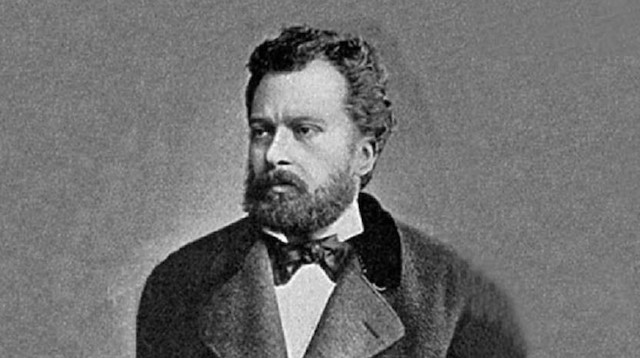
Namur Kemal: A Visionary Intellectual of The Young Ottoman Movement
By Ayesha Omar
In the waning years of the 19th century, as the powerful Ottoman Empire teetered on the brink of decline, a group of brilliant intellectuals emerged from the heart of Turkish society. They called themselves The Young Ottomans, and their express desire was to breathe new life into the empire, modernize its institutions, and revitalize its spirit while preserving its rich Islamic heritage and safeguarding it against the encroaching influence of foreign powers.
Among them was a young and erudite Islamic political thinker: Namik Kemal. Born in 1840, Kemal was a man of prodigious talents – a gifted writer, a visionary poet, a fearless journalist, and an indefatigable political activist. Kemal’s political ideas were deeply rooted in the intellectual currents of his time, drawing inspiration from the liberal and constitutionalist movements that had swept across Europe in the wake of the French Revolution. He was particularly influenced by the political writings of Montesquieu, Rousseau, and other Enlightenment thinkers, whose ideas about the social contract, the separation of powers, and the rule of law resonated deeply with his vision for the future of the Ottoman Empire. In his writings, Kemal wove together these ideas and injected them into an Islamic framework.
This is deftly demonstrated in several key ideas in his political writings. The first of these relates to the question of constitutionalism and the separation of powers. Kemal argued: “The state is a moral personality… the actions of the government can never be saved from the unfettered exercise of will. Thus, the necessity for a council of the umma arises from this.” Kemal argued that Islamic principles, particularly those found in shari’a, were compatible with the concept of constitutionalism. He believed that the principles of consultation (shura) and consensus-building (ijma) within Islamic tradition could be integrated into a constitutional framework to ensure that governance was based on the will of the people.
Similarly, on the concept of sovereignty belonging to the public and the natural right of individuals to exercise power collectively he suggested: “Therefore, just as all individuals have the natural right to exercise their own power, so too conjoined powers naturally belong to all individuals as a whole, and consequently in every society the right to sovereignty belongs to the public.”
What set Kemal apart was his unique ability to synthesize these Western political concepts with the traditional values and institutions of Islamic society. He argued that the principles of constitutional government, individual rights, and the rule of law were not only compatible with but indeed essential to, the teachings of Islam.
In his view, the Qur’an itself contained the seeds of democratic thought, with its emphasis on justice, equality, and the importance of consultation (shura) in decision-making. By grounding his political vision in both Western and Islamic traditions, Kemal sought to create a new, syncretic political thought that could guide the Ottoman Empire into the modern age while preserving its cultural and religious identity.
But Kemal was not content to confine his activism to the realm of letters alone. He threw himself into the world of journalism, founding and editing a string of newspapers – Hürriyet (Freedom) and İbret (Admonition) among them – spreading the ideas of The Young Ottomans far and wide. As the scholar Mardin points out, in his famous article ‘Wa shawirhum fi al-amr’ (And consult with them on the matter), published in the newspaper Tasvir-i Efkar in 1865, Kemal argued passionately for the necessity of popular participation in government, insisting that the people had a right to be consulted on the affairs of state that affected their lives
For his troubles, Kemal paid a heavy price. His outspoken criticism of the Ottoman government earned him the ire of the powers that be, and he was forced to endure exile and imprisonment on multiple occasions. But even in the face of adversity, his spirit remained unbroken, and his ideas lived on, inspiring future generations of Turkish thinkers and reformers who would carry on his work. In the end, the contributions of Namik Kemal and The Young Ottomans to the intellectual and political ferment of the late Ottoman period cannot be overstated.
*Dr Ayesha Omar is a Senior Lecturer in Political Studies at the University of the Witwatersrand and currently a British Academy International Fellow at SOAS, University of London. She is working on a new book project on Black Intellectual History in South Africa.


